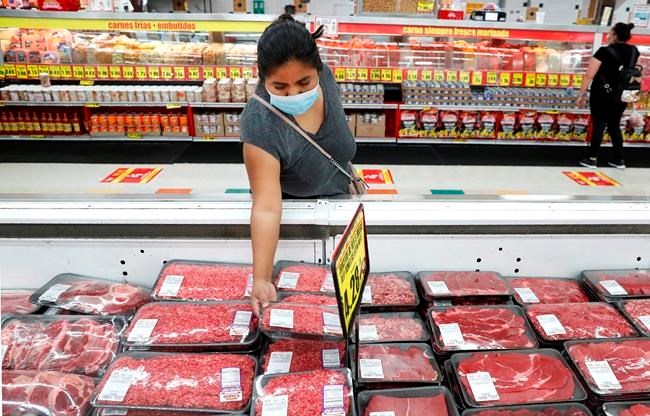SILVER SPRING, Md. — Wholesale prices jumped again in March pushed by another big increase in energy prices, the government reported Friday.
The Labor Department’s producer price index, which measures inflation before it reaches consumers, rose 1% in March, follows last month’s 0.5% gain and a record jump of 1.3% in January.
Energy prices jumped 5.9%, the Labor Department said Friday. That follows increases of 6% last month, 5.1% in January and 4.7% in December. Energy prices accounted for 60% of the March’s advance in wholesale prices, with gasoline costs up 8.8%.
Over the past year, wholesale prices are up 4.2%, the biggest jump since a 4.5% increase for the 12 months ending in September 2011.
Core inflation, which excludes volatile food and energy, rose 0.7% in March and is up 3.1% over the past 12 months, well past the Federal Reserve’s target of 2%.
At their meeting in March, Fed policymakers said they expected that inflation would likely rise in the next few months because of supply bottlenecks, but believe it will remain near their 2% target over the longer run.
Most economists also think the recent surge in prices will be temporary, a result of several factors including the government's recent fiscal stimulus package and pent up demand due to the coronavirus pandemic.
“The fiscally stimulated revival of consumer demand and strong base effects will lead to faster annual inflation rates in the spring,” Oxford Economics wrote in a note to clients. “However, these should be temporary dynamics, and we continue to expect the Fed to remain accommodative through mid-2023.”
Encouraged last month by evidence the U.S. economy was gaining momentum, Federal Reserve officials at their March meeting showed no signs of leaning toward ending their bond purchases or lifting their benchmark short-term interest rate from nearly zero. The Fed has
The report Friday was delayed for almost 30 minutes due to a glitch on the government site where data is usually released.
Matt Ott, The Associated Press



